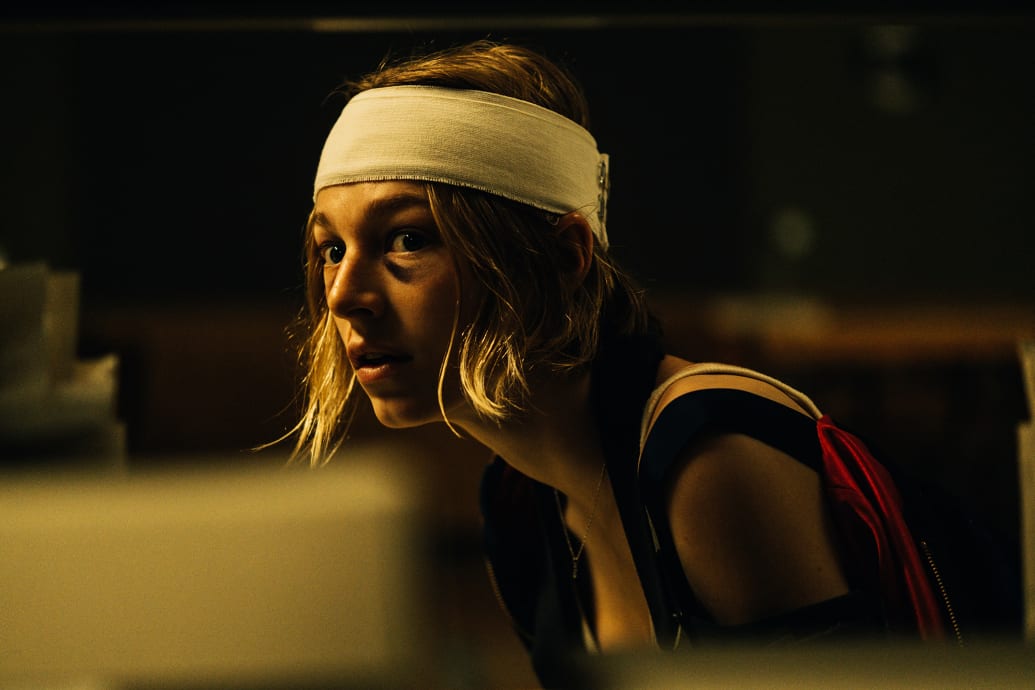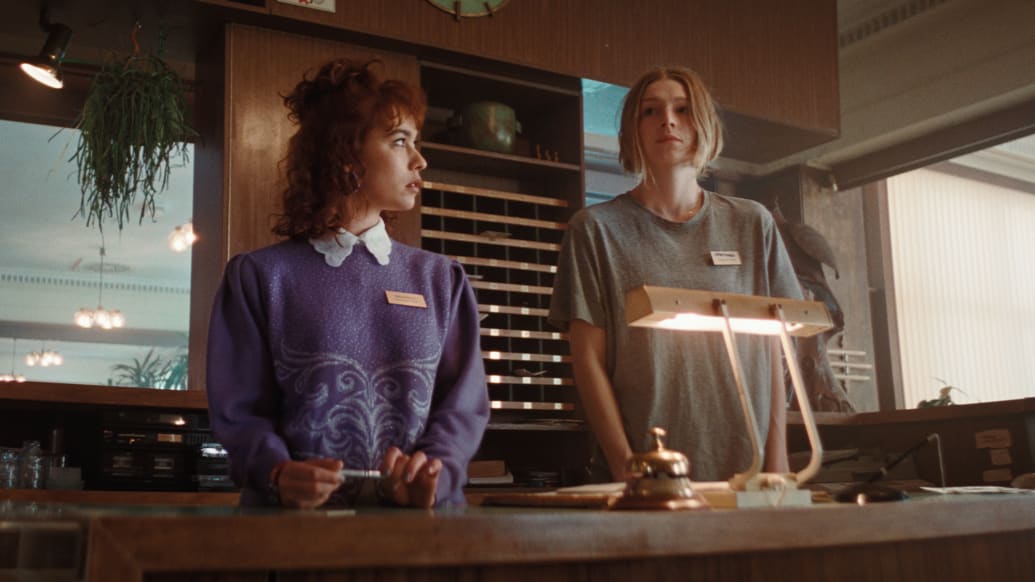One of the most enticing elements of a new horror film is watching the lead actor go through hell. It sounds harsh, but horror is a genre that provides opportunities for jaw-dropping performances, pushing actors to their limits as their characters experience things most of us could never fathom. That’s not something Hunter Schafer, star of Tilman Singer’s Cuckoo, uses to her advantage.
In just one horror performance, Schafer shows the potential to become a legendary scream queen alongside legends Jamie Lee Curtis and Barbara Steele and newcomers Maika Monroe and Mia Goth. Her performance in Cuckoo is so good she might have earned the ultimate Scream Queen title in one role.
Schafer plays Gretchen, a 17-year-old struggling with her family’s move from the US to the Bavarian Alps in Germany, where her father, stepfather, and younger stepsister have come to work on the development of a resort run by Herr König (Dan Stevens). As this is a horror movie, things are a lot weirder than that—a strange, powerful hooded woman starts following and attacking Gretchen, but nobody seems to believe her.
(Warning: Cuckoo spoilers ahead!)

Gretchen grows increasingly disconnected from her family, who barely notice she’s there. All her father’s attention is devoted to her stepsister Alma, who cannot speak, and communicates through her phone or sign language. After Gretchen survives the first attack from the hooded woman, she’s in the hospital alone, and leaves her room to find her father and stepmother with Alma—it doesn’t seem like they even knew Gretchen was there. Schafer’s face here is extraordinary, loaded with frustration and anguish as she’s feeling indescribably adrift, explaining much of her over-it behavior she’s exhibited: At her core, she’s an extremely lonely teenager.
Cuckoo is creepy and has plenty of genuine fright, but Singer’s script gives Schafer opportunities to show off her comedic timing and have some fun with the role. While working the front desk at the resort, Gretchen helps Ed (Astrid Bergès-Frisbey), a French woman whom she is immediately smitten by.
As part of her job, she has to ask Ed if she’s part of a couple or celebrating an anniversary, as there are special discounts available. Schafer’s delivery is hysterical as she practically forces the words out of her mouth, torn between the absurdity of the question (Ed is clearly alone) and the fact that she’s hoping Ed will say no. Schafer plays up the sweetness of the situation, as Gretchen is clearly flustered, and her eyes express a confidence her mouth cannot match.
Later, a highly stressed Gretchen has grown incredibly suspicious of König, and demands to know why her family has been forced to move to Bavaria from their life in America. The ever creepy König says “You’re here because your family belongs here.” Gretchen snaps, shouting, “That’s a very fucking weird way to put it!”
It’s an exceptionally funny moment that comes from a tense scene, as Gretchen says exactly what the audience is thinking: That is, in fact, an exceptionally odd way of stating things. It’s a line that could easily be cringy, a rather obvious declaration that’s more like the audience shouting at the screen than something a character would say. But Gretchen has always been one to speak her mind, and Schafer delivers the line with equal parts frustration and desperation, generating laughter, but also concern for her character’s wellbeing.
Things do get bloody though: When it comes to the high-octane finale, Schafer handles the action beautifully. Gretchen is practically itching for a fight throughout Cuckoo, regularly practicing with her butterfly knife, flicking it around with the ease of an expert (Schafer herself practiced using the knife to prepare for the role, and her work pays off).
Gretchen’s faceoff with the woman who’s been hunting her is suitably epic, and Schafer controls her breath perfectly, grunting and groaning in agony as she tries to free herself from a collapsed cupboard to reach her knife. She lets out a blood-curdling shout to alert the woman to her location, and when she gets in striking range, Gretchen plunges her knife into the woman, killing her. It’s a ruthless, swift move that shows Gretchen’s determination to stay alive. It’s thrilling stuff, and Schafer’s performance makes it chillingly believable.

But it’s the emotional sequence in the film’s climax that makes her performance—and Gretchen’s decision making—all work. Gretchen sits with her young sister Alma after her fight. In a shocking twist, Alma isn’t her stepsister, or even human. She’s part of a species preserved and curated by König, and the woman chasing Gretchen was her mother. Earlier, Gretchen heard a message Alma sent to Gretchen’s mother, which revealed that Alma actually loves Gretchen deeply and cares for her more than she ever thought possible.
Tears flowing, Gretchen communicates in sign language with Alma about how she loves her and how they’ll make it out of the hospital alive, ultimately escaping Bavaria together. It’s a beautiful scene—Gretchen is not confident they’ll survive—and you can feel that pain in Schafer’s performance. Here, the weight Gretchen has felt all film long at being ignored and cast aside by her family, is lifted.
Despite the brutal situation Gretchen is in, there’s a lightness to Schafer’s performance that speaks so deeply to how moved Gretchen is, and how she really loves her sister, no matter what species she may be. It’s the best scene of the film, and Schafer cuts through all the twisting plot mechanics and queasy reveals to deliver a thrilling, distinctive performance.





